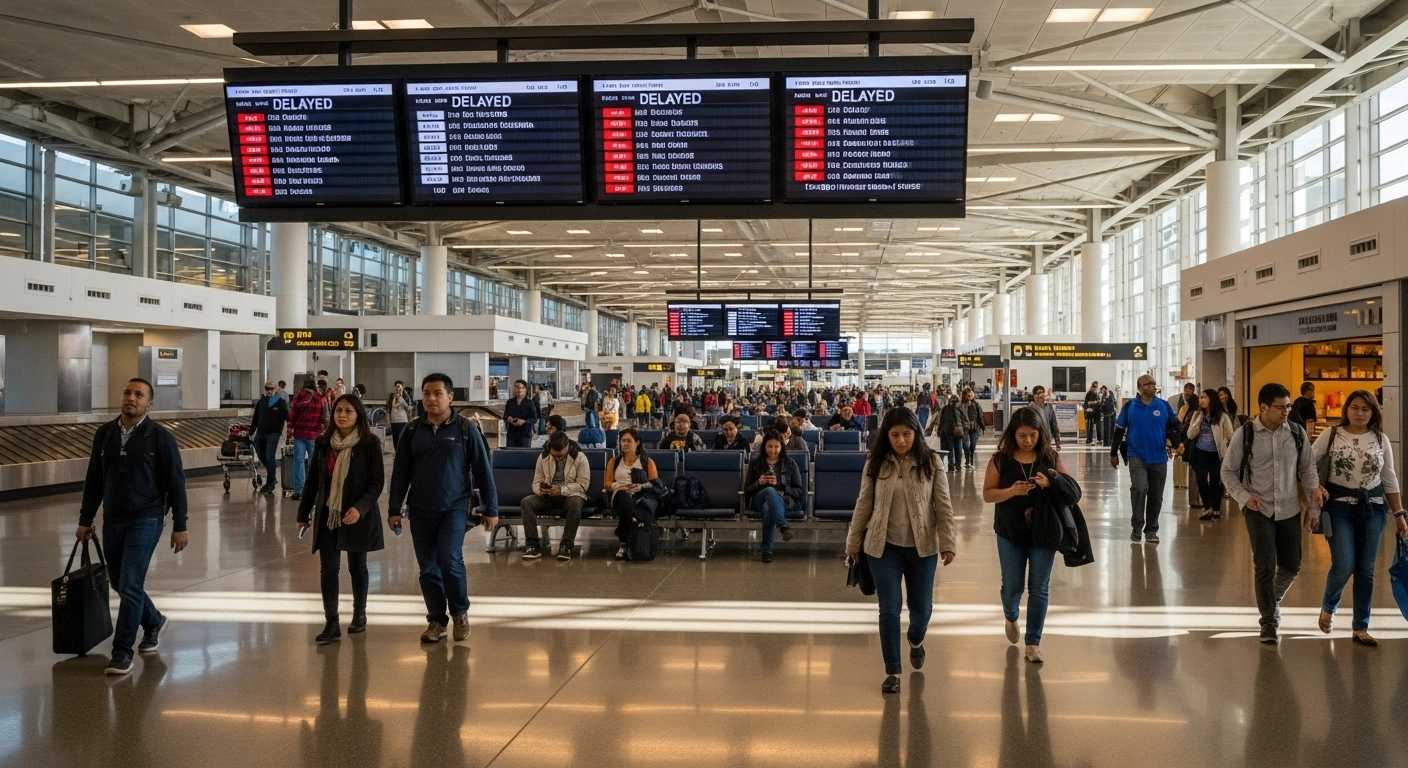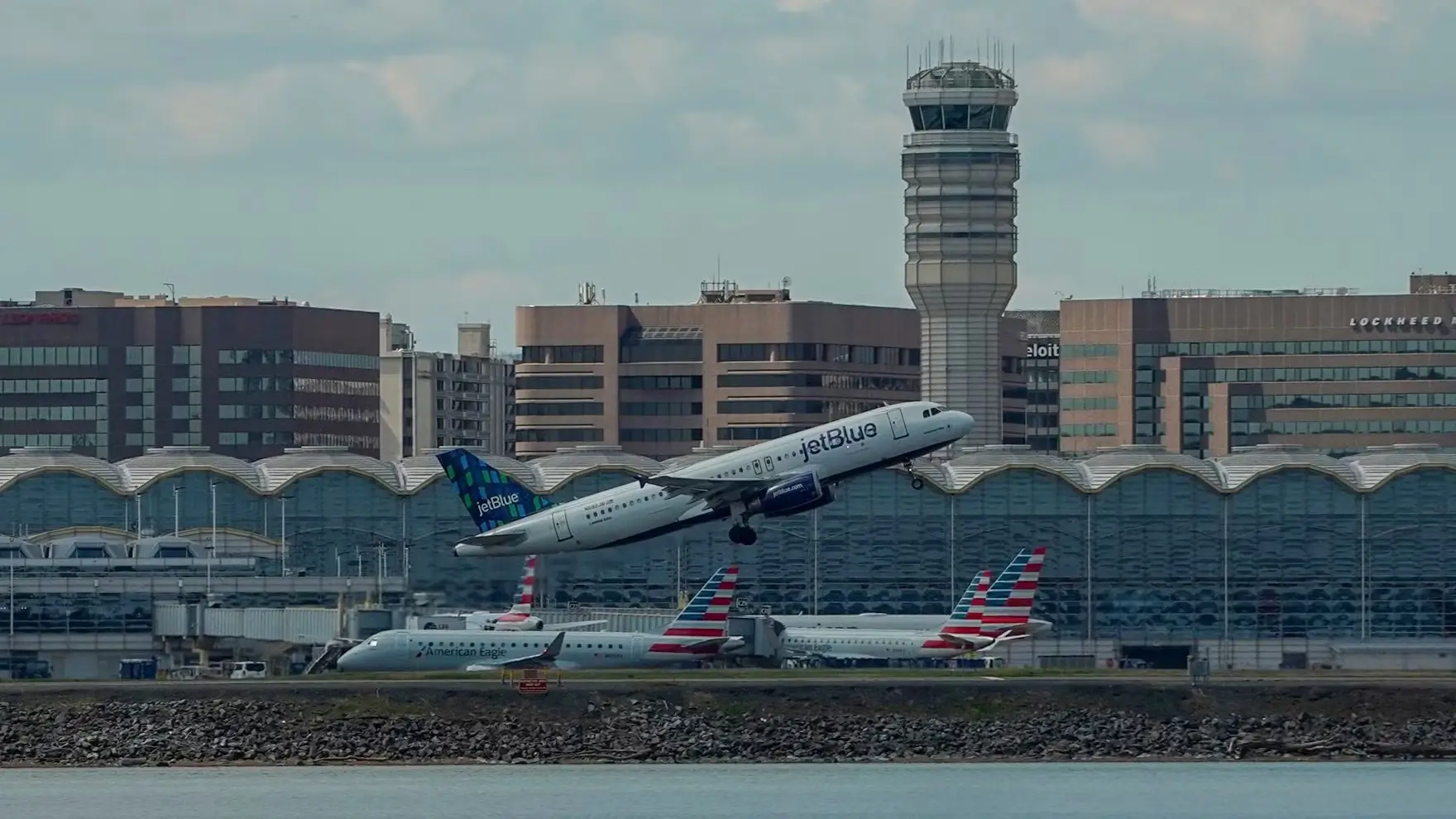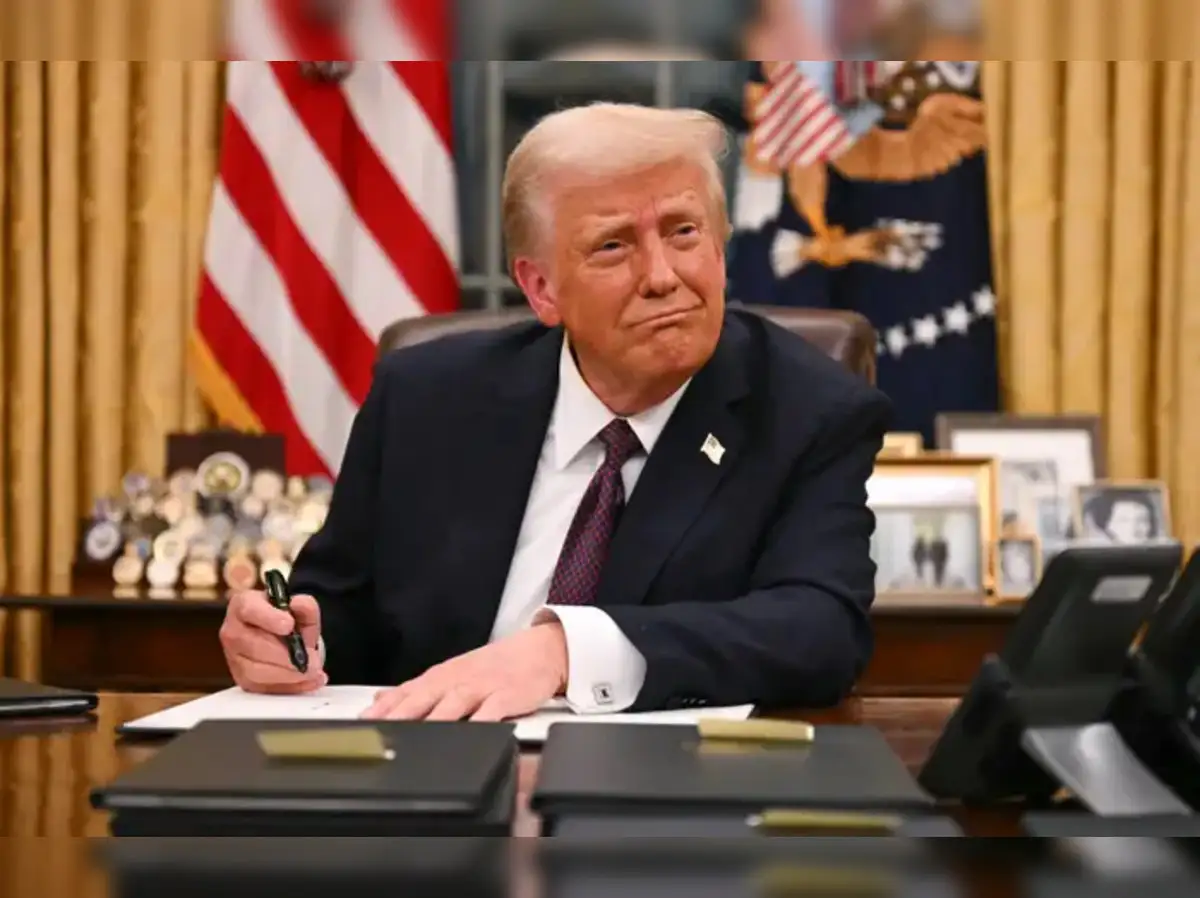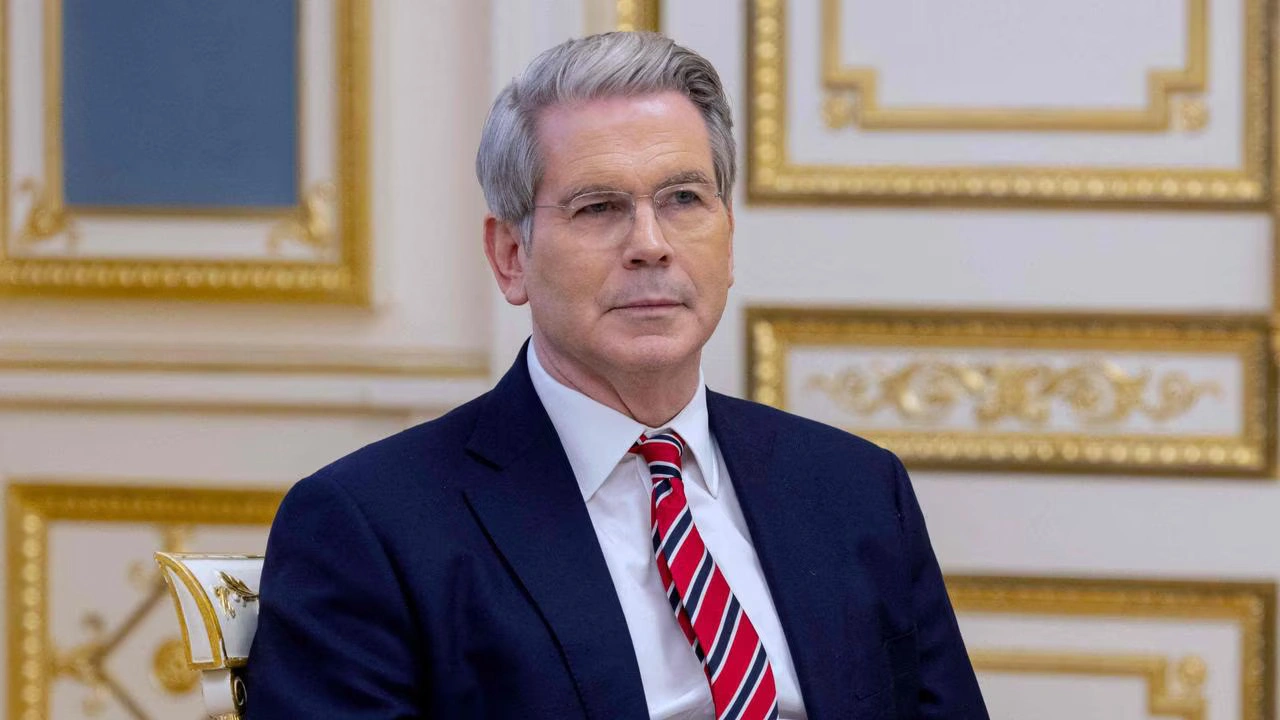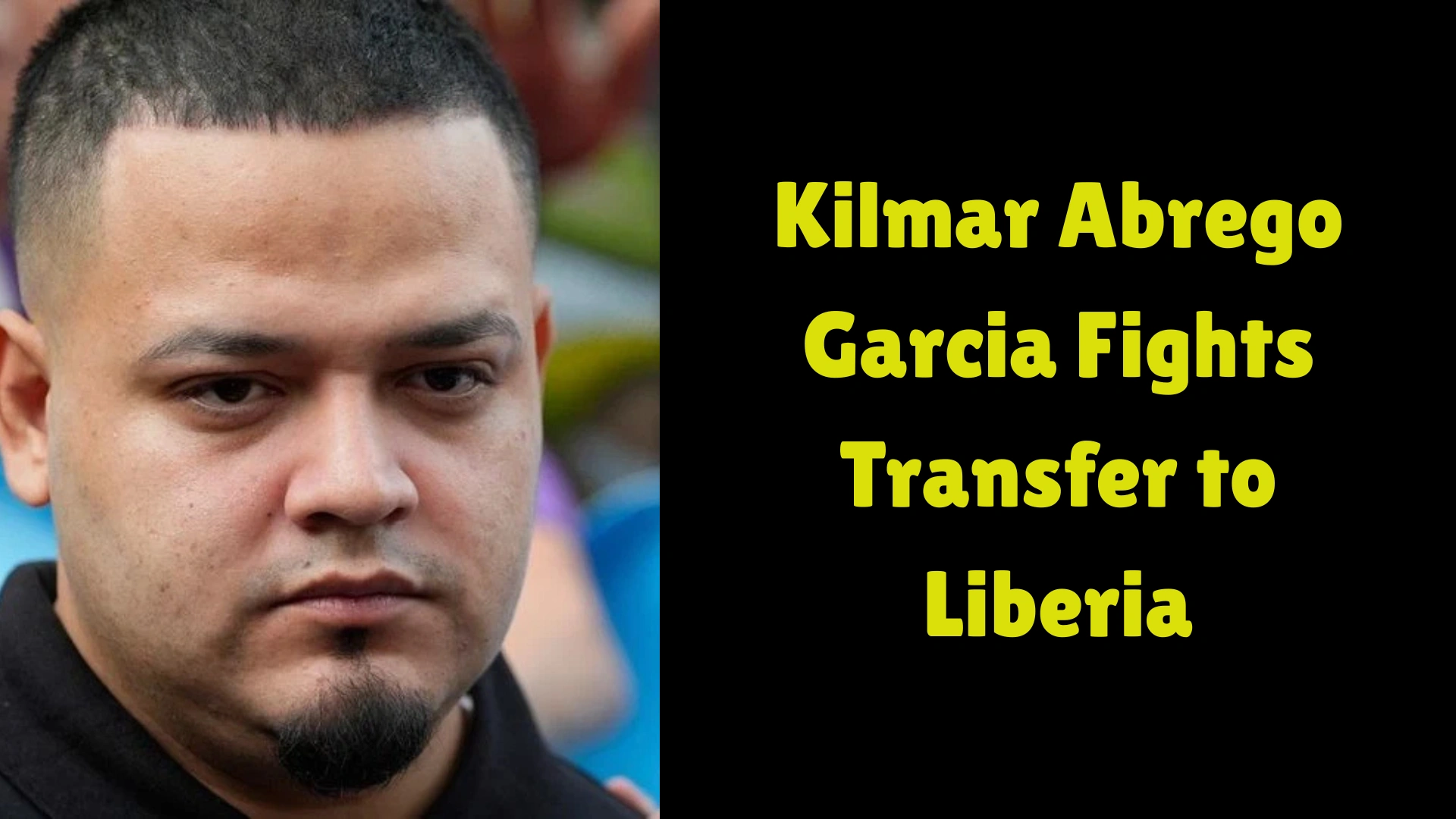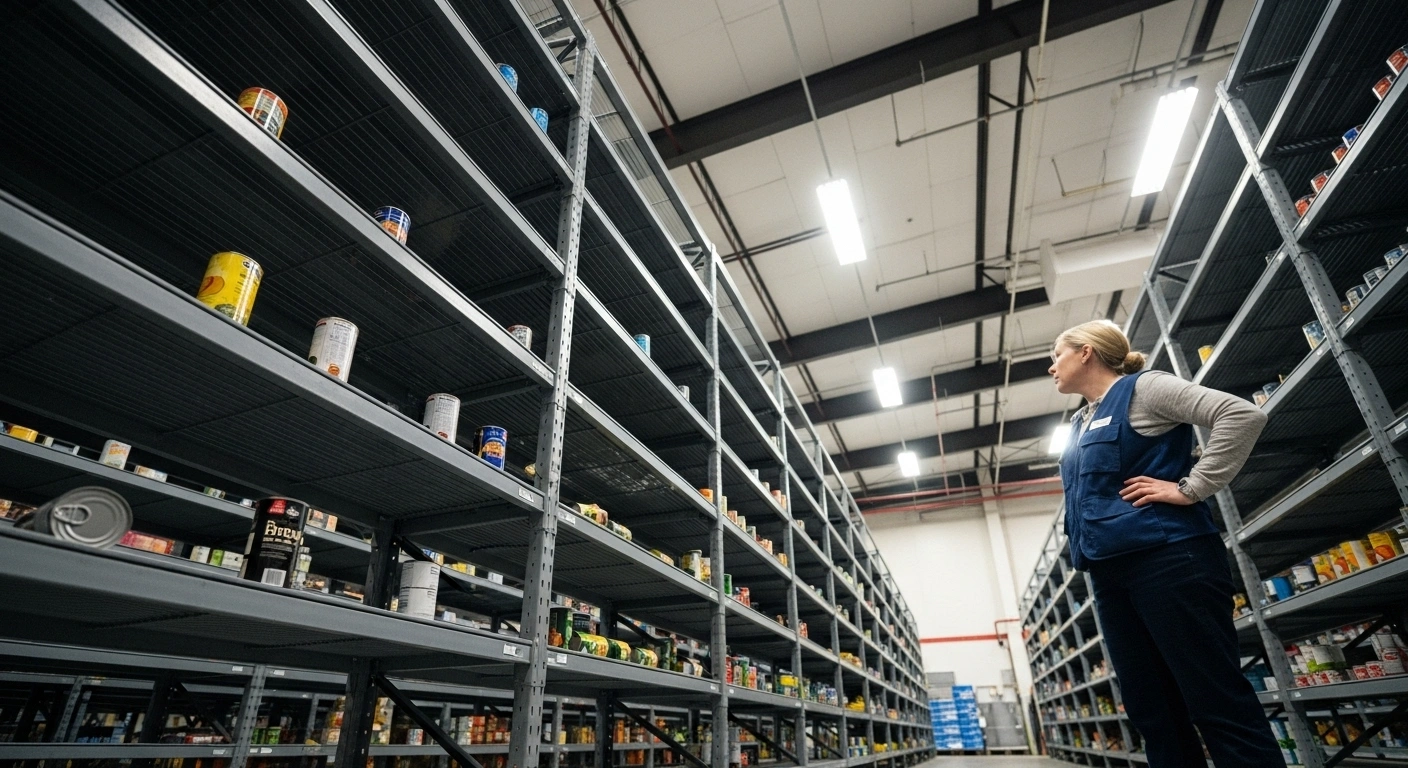Transportation Secretary Sean Duffy Confronts Growing Crisis as Air Traffic Controllers Miss First Full Paycheck
In an ordinary week, the air traffic controllers guiding thousands of flights across the United States perform a high-stakes job that demands absolute precision. This week, however, they are doing it without a paycheck. As the federal government shutdown stretches into its fourth week, Transportation Secretary Sean Duffy is confronting a system under severe stress, warning that the financial strain on these essential workers is making the nation’s airspace less safe.
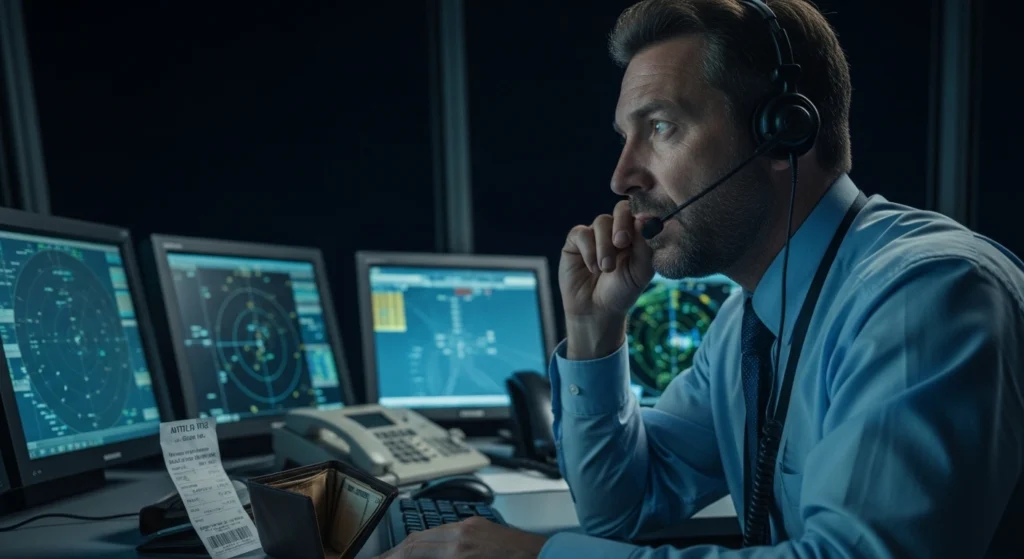
A System Pushed to the Brink
The crisis reached a new level of urgency on October 28, when air traffic controllers received their first paycheck with a value of zero . Secretary Duffy, speaking from New York’s LaGuardia Airport, described the human toll of this missed payment. “The first day is hard, but the second day is even harder than that. And the third day. Because they have gas, they have childcare costs,” Duffy stated, making the situation relatable to every working American .
He shared a poignant story from one controller who had to tell his 10-year-old daughter he could not pay for her traveling volleyball team. “I had to tell her I couldn’t pay the money because I don’t have a check coming in. I have to put food on the table,” Duffy recounted, calling the situation “tragic” .
The financial pressure is forcing many controllers to make difficult choices. Duffy expressed deep concern that controllers are taking on side jobs, such as driving for Uber or delivering for DoorDash, to make ends meet . “I don’t want them driving DoorDash. I don’t want them going to the food bank. I want them focused on keeping you safe,” he emphasized on Fox & Friends .
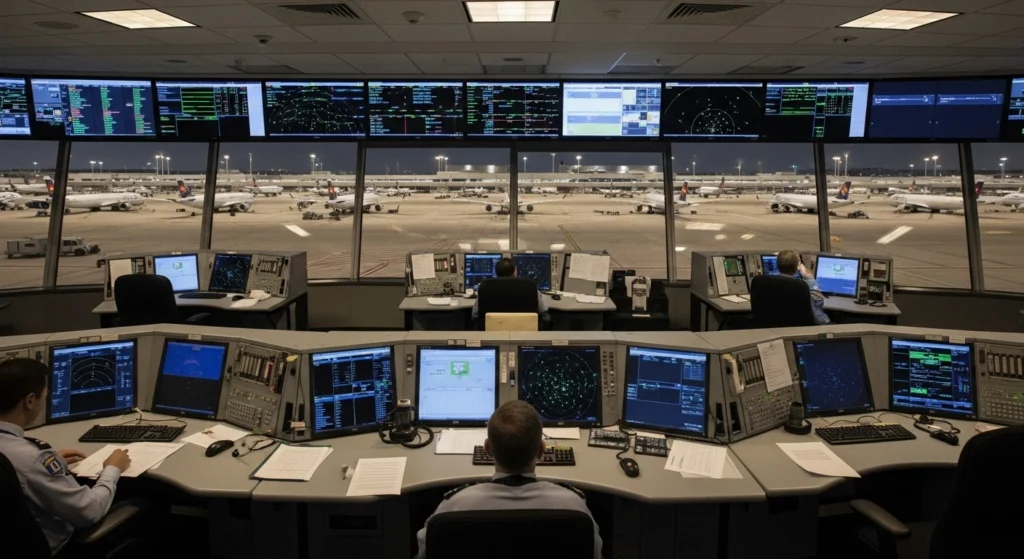
The Stark Reality of Staffing Shortages
The shutdown exacerbates a pre-existing shortage of about 3,000 air traffic controllers . The consequences are already visible in the national airspace. Secretary Duffy reported that staffing shortages accounted for 44% of flight delays on Sunday and 24% on Monday . These aren’t just minor inconveniences. On Thursday night, for example, flights at Newark Liberty International Airport were delayed an average of 87 minutes .
The Federal Aviation Administration (FAA) has reported 222 staffing shortages at control facilities since the shutdown began, a figure more than four times higher than the same period last year . Facilities in Dallas Fort Worth, Newark, Phoenix, Houston, Southern California, Atlanta, and Denver have all been short-staffed .
When a facility is understaffed, the FAA has a clear protocol: slow down the airspace. “If we don’t have enough controllers, if we have controllers that are more stressed and less able to do the job… we will reduce the capacity of airplanes taking off and landing, or we will cancel flights,” Duffy explained . This safety measure is necessary, but it directly translates to more delays and cancellations for travelers.
Sean Duffy’s Message: Safety and Accountability
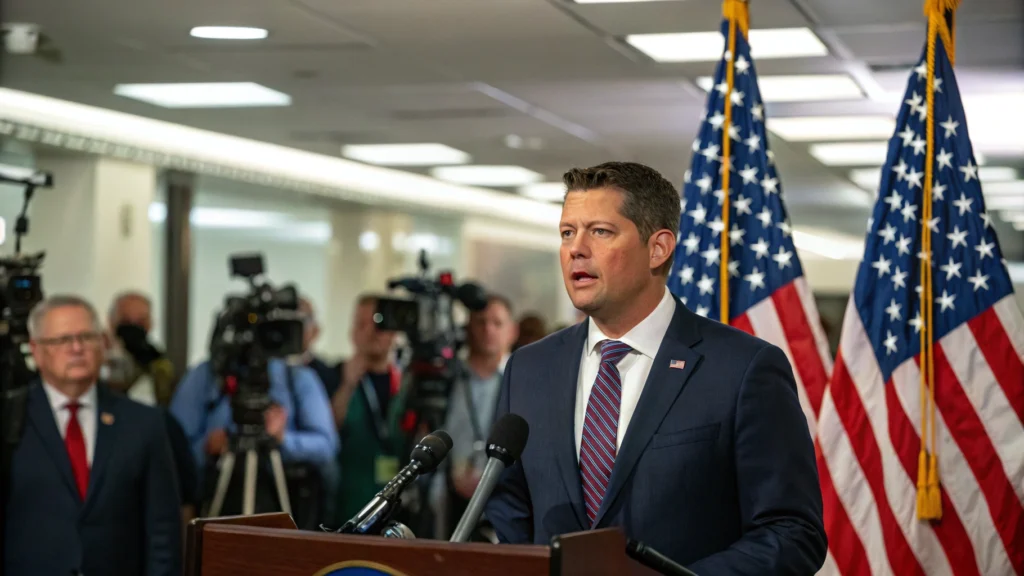
Amid the strain, Secretary Duffy has walked a careful line, expressing sympathy for workers while maintaining a firm stance on their responsibilities.
A Reassurance on Safety, For Now
Despite the challenges, Duffy has consistently reassured the public that the system remains safe. “You are safe to fly because these controllers come in, they’re the most amazing professionals. They do their job, they keep you safe,” he stated . He attributes this safety to the professionalism of the controllers and the system’s built-in redundancies. If controllers are distracted or facilities are understaffed, the FAA will deliberately reduce the number of flights they handle to maintain safety margins .
A Warning to “Problem Children”
However, Duffy’s patience has limits with those who choose not to report for work. He has threatened to fire controllers who inappropriately call out sick, referring to them as a small subset of “problem children” who are creating a “massive disruption” . “If we have some of our staff that aren’t dedicated like we need, we’re going to let them go,” he warned in a Fox Business News interview .
He clarified the administration’s position on backpay, stating, “When you come to work you get paid. If you don’t come to work, you don’t get paid. That’s the way we’re going to do it” . The National Air Traffic Controllers Association (NATCA) President Nick Daniels was quick to clarify that there is no coordinated labor action, noting that such action would be “illegal” .
The Human Cost : Voices from the Towers
Beyond the statistics and political statements, the shutdown is inflicting a deep human cost on the individuals responsible for aviation safety.
Joe Segretto, a controller at a regional radar facility for the New York area, spoke to the pervasive anxiety. “The pressure is real,” he said. “We have people trying to keep these airplanes safe. We have trainees… now having to worry about how they’re going to pay bills” .

NATCA President Nick Daniels provided even starker examples of the personal crises unfolding. “I got a message from a controller that said, ‘I’m running out of money. And if she doesn’t get the medicine she needs, she dies. That’s the end,'” Daniels shared at the LaGuardia news conference . He stressed that the job requires “100% of focus 100% of the time,” a level of concentration that becomes nearly impossible when worried about putting gas in the car or paying for childcare .
A Political Standoff with No Clear End
Secretary Duffy has placed the blame for the impasse squarely on Senate Democrats. “You are safe to fly… But again, I don’t want them driving DoorDash… I want them focused on keeping you safe,” Duffy said, immediately adding, “But here’s what’s even worse. Democrats aren’t voting to open up the government” .
He has called for a simple solution: either open the entire government or pass legislation to ensure essential workers get paid . A bill from Sen. Ted Cruz (R-Texas), S. 3031, which would pay air traffic controllers and TSA baggage screeners during the shutdown, is one of the few remaining near-term options . However, Senate Democrats have been resistant to such piecemeal funding approaches. Sen. Richard Blumenthal (D-Conn.) argued they can’t give President Donald Trump “carte blanche to do what he wants” .
Long-Term Damage and an Uncertain Future
Perhaps the most lasting damage of the shutdown is being done to the future of the air traffic control workforce. Secretary Duffy warned that the shutdown is “cataclysmic” for recruiting new controllers . He reported that some students have already dropped out of the FAA’s training academy in Oklahoma City, and younger controllers in training might abandon their careers because they cannot afford to go without pay .
This setback comes just as the agency was making progress. In September 2025, Duffy announced the FAA had hit its hiring goal for the fiscal year by bringing in 2,026 new controllers . The prolonged shutdown now threatens to undo these gains, deepening a staffing crisis that will take years to resolve.
As the shutdown continues with no clear end in sight, the pressure on the aviation system will only intensify. The professionals who keep the skies safe are being asked to perform their high-stress jobs while facing severe financial distress. While Secretary Sean Duffy works to manage the immediate crisis, his message is clear: the only real solution is for Congress to act. The safety of the national airspace depends on it.

